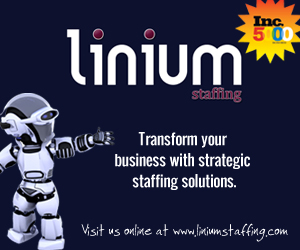Going Beyond the Basics When Assessing Candidates

In fact, an infographic by Fast Company, “The Staggering Cost of a Bad Hire, And How to Avoid One,” details just how detrimental hiring the wrong candidates can be to a company’s bottom line… and pocket.
The infographic explains:
– 41 percent of companies surveyed said a bad hire cost them at least $25k in the last year, while 21 percent say a bad hire cost them at least $50k in the last year
– Bad hires also negatively affect: worker productivity (41%), time and training due to hiring another worker (40%), expenses due to recruiting and training replacement workers, employee morale (36%), and client solutions (22%)
– 21 percent of companies made a bad hire because they didn’t test or research the employee’s skills well enough

Think about the typical questions interviewers ask:
– Why do you want to work here?
– What skills can you bring to the table?
– How would you resolve conflict?
These questions and many others are extremely general; they don’t require the interviewee to truly think about his or her answers, which doesn’t give you, the interviewer, any more information about the candidate than what’s on paper.

A basic assessment strategy will result in basic information, which can lead to costly bad hires. To avoid this, below are four questions/requests you can use in your interviewing process to help draw out the necessary information about a candidate, helping you to truly determine whether or not he or she is the right fit :
Describe your last three roles and why you chose them.
Asking for this information will reveal the candidate’s career plans (or lack thereof). Sure, anyone can tell you that they applied for the job because they’re eager to work for your company and believe it will help advance their career. But many times what a person says doesn’t always match their past history.

What would you change about your previous (or current) job?
This will provide a peak into the candidate’s character. Does he or she bad mouth a former employer? Or openly criticize the business? This can reveal to you the candidate’s level of professionalism and provide some insight on how it would be if ties were broken between your organization and this person.
Remember, reputation and brand are everything. Many of today’s top talent look at review sites like Glassdoor before making a decision. You don’t want any negativity being spread about your business from a current or former employee.
Tell me one thing about this company or CEO.
The answer to this request will show a candidate’s research and preparation. Did he or she care about this interview (and ultimately landing the role) enough to go beyond the basics and truly learn about your business? This can give you a heads up on whether or not the person is applying for the right reasons.
Sell me this company’s brand.
Asking an interviewee to do this demonstrates if the future employee will be a good brand ambassador. In fact, it will show you if he/she even knows your brand.
This request isn’t about sales or specifically for a sales role, but more so an individual’s ability to clearly and effectively communicate and represent your brand to others. No matter the role or the setting, in some form or another, every employee is a brand ambassador.
A special thank you goes out this month’s Leadership Sponsors: Zoho, TheLadders, and Linium Staffing. Please visit their sites to understand how these quality services can elevate your interviewing and assessment practices.

